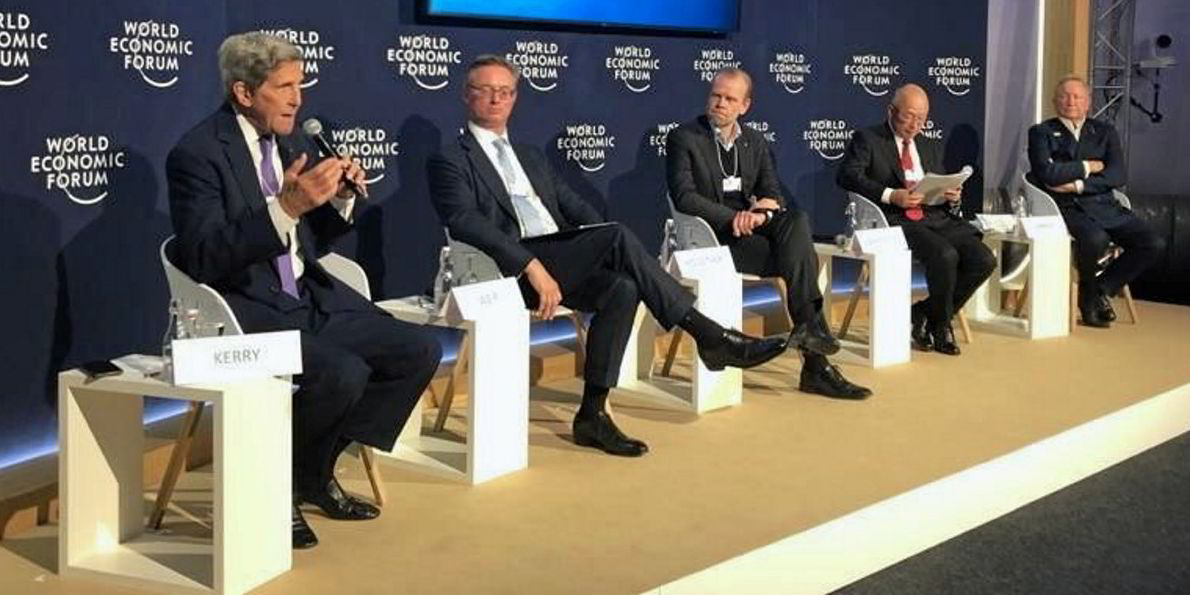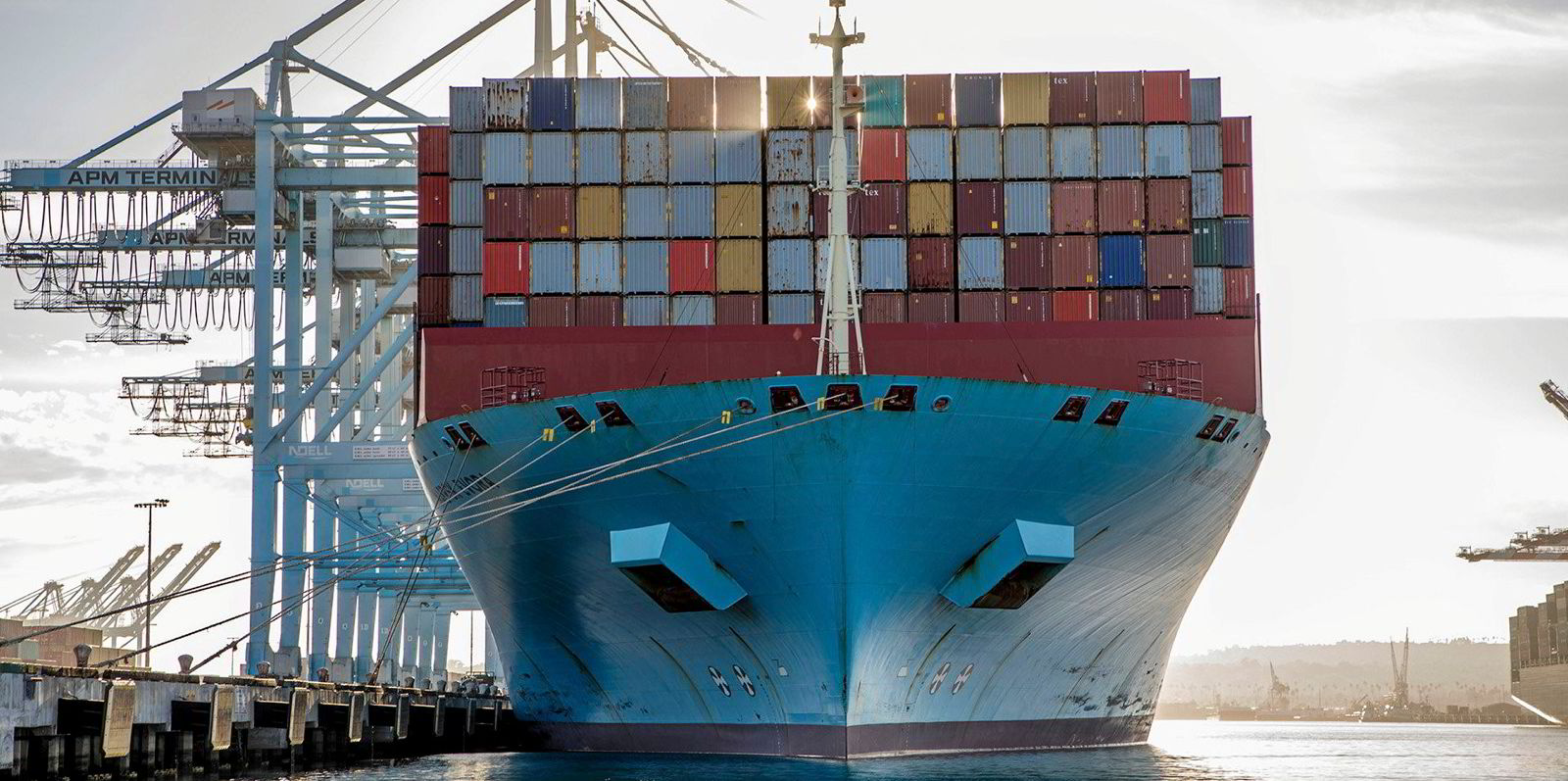A rapid fuel transition in shipping is inevitable, and we must prepare for it now. Evidence shows that there are no-regret actions and investments we can make right now.

Scalable zero-emission fuels for shipping — synthetic fuels made using available technologies — can stimulate investment and scale up clean fuel infrastructure and production.
This will also benefit other sectors, as shipping will be a major demand driver of green hydrogen investment.
For example, the 2030 Breakthroughs of the United Nations Climate Champions indicate that zero-emission fuels could make up 5% of international shipping fuels and 15% of domestic shipping fuels by 2030, representing a potential tipping point for uptake as the fuel of choice for shipping, as well as for the production of steel and ammonia.
Forthcoming 2025 milestones from the Climate Champions indicate that 50 small-scale production facilities and $10bn in public and private finance could put us on track for 2030 targets.
Such investments will also create global opportunities for many countries to become energy exporters. Australia, Chile, Mexico, Morocco, South Africa and Indonesia are just a few countries investing in renewable hydrogen to synthesise fuel.
Announced projects that could supply the Europe-Asia green corridor with fuels have an estimated total of 62 GW of green hydrogen capacity by 2030, if all commissioned. On the demand side, shipping lines alone could use as much as half of this capacity, providing a strong signal for investment.
Shipping demand along this one major corridor could offtake nearly 10% of the expected global green hydrogen capacity of 350 GW in 2030.
The need for full shipping decarbonisation in line with science is more urgent than ever, and the industry is responding.
At COP26, we were among the 240 signatories of a call to action on shipping decarbonisation that made three asks of governments: commit to decarbonising international shipping by 2050; support industrial-scale zero-emission shipping projects; and deliver policy measures that will make zero-emission shipping the default choice by 2030.
The Poseidon Principles offer the first industry-specific framework to enable financial institutions to align their finance portfolios with climate targets, and they should continue this trend for alignment with a 1.5C trajectory.
Global framework
Meanwhile, the Poseidon Principles for Marine Insurance, a global framework for measuring and publicly reporting the climate alignment of insurers’ hull and machinery portfolios, entered into force earlier in May and will require first reporting by the end of 2022.
Pioneering, industry-led initiatives such as the Getting to Zero Coalition are bringing leading companies from across the maritime value chain to accelerate decarbonisation.
Charterers and shipping companies can lead the way by committing to the Sea Cargo Charter, a framework for assessing and disclosing climate alignment of ship chartering activities, or for eligible companies, the forthcoming science-based targets for shipping.
Here are some additional examples of how companies can position for market share now, by committing to near-term action:
Ensure that new vessels are built to future-proof designs and are ready for retrofitting to avoid obsolescence. This will set the stage to reach or surpass the target of 5% zero-emissions fuels by 2030.
Engage in green corridors and first-mover projects. The implementations of green corridors — specific trade routes between major port hubs where zero-emission solutions are supported — have the potential to create favourable conditions for scaling zero-emission fuels and bunkering infrastructure.
Be a leader in green demand, whether for zero-emission fuel commitments or chartering zero-emission vessels. Shipowners and operators can initiate offtake agreements for scalable zero-emission fuels now. Through the coZEV network, consumer goods companies are working together to send a clear demand signal for zero-carbon maritime shipping. Through the First Movers Coalition, members commit to use zero-emission fuels in vessels by 2030.
Finally, we urge other CEOs to use their leadership positions and political influence to publicly call for 1.5C-alignment and clarity in policy that incentivises the transition.
The technological solutions are within reach — there are clear actions that both industry and policymakers can take now — and co-benefits of decarbonisation that build resilience and energy independence into our economies.
We took the stage at the World Economic Forum meeting in Davos to say that a full and equitable decarbonisation of international shipping is not only urgent and achievable — it is a business imperative. We invite others across the maritime industry and through our value chains to join us and act now.
Svein Tore Holsether, president and CEO, Yara
International; Takeshi Hashimoto, president and CEO, Mitsui OSK Lines; Jeremy Weir, chairman and CEO, Trafigura Group; Johannah Christensen, CEO,
Global Maritime Forum.
Do you have an opinion to share?
Email: news@tradewindsnews.com





